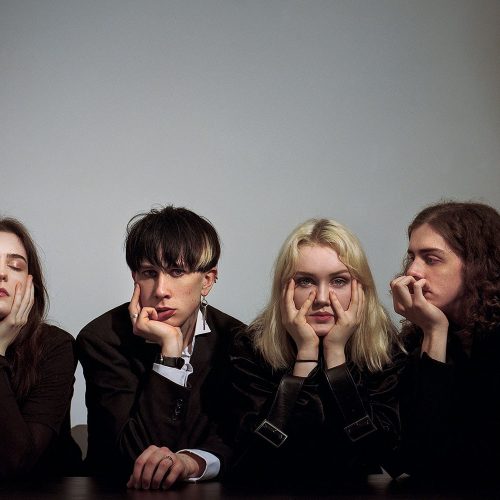Looking at Van Gogh’s Olive Trees with the Alpilles in the Background, produced during his troubled stay at Arles in the southern French countryside, it’s almost impossible not to experience the emotional tumult that, by then, had come to define the ill-fated artist’s day-to-day. His deft use of intense undulating brush strokes makes out of the painterly landscape a dreamlike and surreal place seemingly untethered by the demands exacted by the laws of physics, as trees, clouds, fields, and skies all appear to evanesce into a state of matter-less-ness right before our eyes. Contrasting muted greens with cool luminescent yellows and doleful Sapphire and Egyptian blues, and bolstered by the absence of any straight lines, the painting’s effect is one of hopelessness and melancholy that point at the dissolution of reality as he previously knew it.
When things fall apart, it can often feel as though they bring down with them the entire edifice you have spent a lifetime propping up on the shoulders of suppositions that dissipate like shadows under the light of new experiences. We’ve all been there before. We’ve all, at one time or another, felt the pull on the rug right under our feet as we did our best to maintain our balance and regain our composure. But try as you might, sometimes, even when you manage to remain standing, the mere thought of taking the next step can feel quite daunting. After all, it’s hard to trust the ground you walk on when you fear that it could cave in at any moment.
This anxious-ambivalent approach to picking up the pieces, while simultaneously, making sense of things is at the crux of the existential inquiry undertaken by Glasgow-based goth and post-punk duo The Ninth Wave on their single “Abattoir.”
Plucked from their newest EP Unhappy Days, out November 13th through Distiller Records, “Abattoir” presents an honest study of the fragile mental state of a person who finds themselves midway through a recurring cycle of dejection and helplessness.
Through the use of clear and articulate vocals that avail themselves of the ample space and somber mood created by her incorporeal synths, singer Millie Kidd begins to list off a growing inventory of self-accusations that cut down to the very core of her personhood:
“Starting to think you don’t really know who you are
Temptation has gotten us this far
And so I wait in line for the abattoir.”
This is familiar ground, so Kidd tells us, her voice wandering mellifluously down sparse measures, as she questions the impending outcome of an unspecified and lugubrious turn of events:
“I’ve been here before, how many times more?
Will you hang me out to dry?”
“Why should I believe you when you tell me that you care?
Why?”
Kidd emphatically demands to know before launching headlong into the chorus, at which point, what had been a slow and steady number carried by sauntering synths and vocals, erupts into a frenzy of confessions and profoundly existential questions that paint a wretched picture of groundlessness, doubt, and despair:
“I’ve forgotten how to dream
(Not afraid to lose your mind)
I see blank figures in my sleep
I’ve forgotten how to dream
(But what if I’ve lost my time for you?)
I see blank figures in my sleep
I’ve forgotten how to dream.”
The way frontman Haydn Park-Patterson slowly materializes out of the song’s shadowy corners to confront Kidd about the possibility that she might have lost her grip on reality is commendable. Here is the song’s centerpiece and The Ninth Wave’s metier: a theatrical and uber-melodic interchange between two opposite perspectives conveyed flawlessly through the alternating use of the male and female voice, in a perversely sadomasochistic act of call-and-response.
“Starting to think no one really knows what they want
Or who to become
Stuck in disunity of personality
This tragedy of uncertainty
(It’s all we’ve got, it’s all we’ve got, it’s all we’ve got)”
Kidd laments before cutting back to the chorus one last time. Does the protagonist ultimately attain the clarity she needs to successfully pick up and move on? I, for one, don’t think so. By the time the song fades out we’re left with an unsettling degree of suspense, as we question the veracity and authenticity of what we’ve just experienced. Is it ever advisable to put our trust and our faith in someone for whom reality is a continuously vanishing mirage, and disbelief the bedrock of the world on which they walk?
I can hear my better judgment’s loud and aggressive voice screaming at me across my brain: NO! Absolutely, not.







